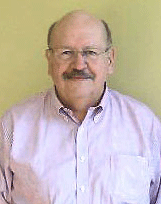Asia-Pacific Action Alliance on Human Resources for Health

The Asia-Pacific Action Alliance on HRH (AAAH) held its first Human Resources for Health conference on October 28 - 31 in Thailand. Fifty-three representatives from 15 countries in the Asia Pacific region, along with representatives from the Global Health Workforce Alliance (GHWA) board and other organizations attended. We recently spoke with Jim McCaffrey, Senior Advisor for Technical Resources for the Capacity Project and one of the resource people for the conference, who said, "It was a great conference, extremely well-run. The sessions were rich, and the diversity of countries present allowed us to explore a range of critical HRH issues from a variety of perspectives."
The goal of the conference was to share HRH issues, progress and challenges at the country level, to look at these issues at the regional level and develop actions to be taken at the country, sub-regional and regional levels to address them. The stated objectives were to:
- identify how HRH constraints within the region are acting as a barrier to effective implementation of strategies for HIV/AIDS, TB and malaria control and to national strategies to achieve the health Millennium Development Goals;
- follow up on HRH activities in member countries in the region;
- share experience on national HRH strategic plan development as well as certain other priority HRH problems;
- share experience on the development of the Global Health Workforce Alliance and other regional platforms and alliances;
- develop a work plan for the next two years of the AAAH.
McCaffery found that the trends in HRH issues were similar across the region and resemble prevailing concerns in sub-Saharan Africa – despite the differences in geographic area, health systems, and levels of economic development. Countries in the Asia Pacific region are dealing with issues around health worker shortages, maldistribution of personnel, retention, migration, and HR units within ministries that are not always as strong or as respected as they should be. McCaffery said, "the numbers [of people and health workers] may look different, the dollar amounts may vary and the places people migrate are different, but they are still dealing with many similar issues."
Some of the countries in the region are coping with additional issues unique to this region, such as medical tourism in India and Thailand. Medical tourists are visitors from places like the United States, Japan and various European countries who come to use the state-of-the-art hospitals that can perform operations just as effectively as in their home country, but less expensively. It is estimated that Thailand alone could have up to 2 million medical tourists this year. Medical tourism has a lot of positive benefits to the health system and to the economy, McCaffery explained, but there are some troubling issues that these countries are trying to address internally For example, this practice raises some internal issues in terms of who has access to these hospitals and equity issues between the rich and poor.
The AAAH conference was a knowledge sharing event that combined country sharing and regional or global sharing. Many of the sessions were organized to take advantage of panel members who could speak at the country level as well as people who could discuss the issues from a global perspective. The conference also served as an opportunity for participants to access resources like the HRH Global Resource Center and the World Health Organization regional sites, as well as to find out which countries have similar issues and how they could learn from each other.
One of McCaffery's goals for the conference was to assist in the presentation of the HRH Action Framework and the tools and resources that accompany it. As part of this session, led by Mario del Poz (WHO), he was able to do a live demonstration of this new product and work with people from individual countries to discuss how the Framework could best fit their situations. The AAAH network, with support from GHWA, offered each country $2,500 as an incentive to try out the Framework and provide feedback on it as well as the accompanying survey instrument (SoftpoDD).
Other sessions included topics such as health financing and reform, human resource development in response to AIDS, TB, malaria, Millennium Development Goals and pandemic flu, and the HRH implications of globalization. The participants spent time discussing the issues at country and regional levels and developed action plans to address them.
For more information about the Asia-Pacific Action Alliance on Human Resources for Health, see the AAAH website.
- 5787 reads




